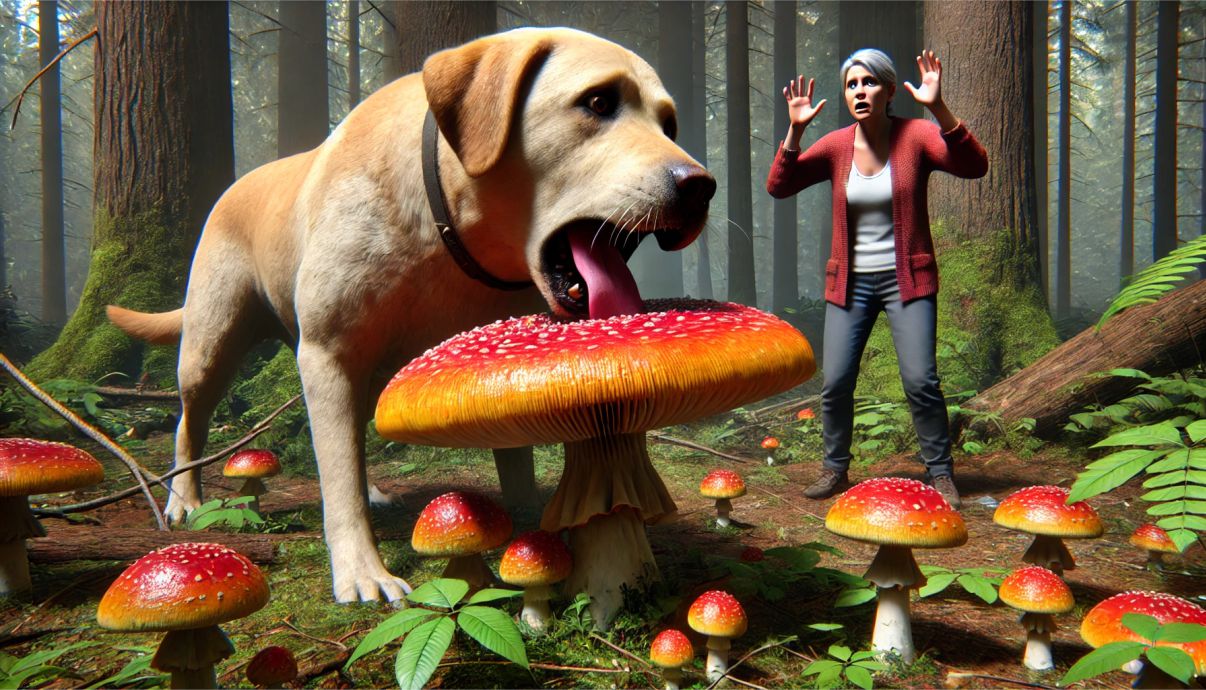Oh no! Your dog has eaten magic mushrooms. That’s actually a scary situation and even though you mustn’t panic, it’s still very important to act quickly.
Why? Because magic mushrooms, or hallucinogenic mushrooms, contain special chemicals known to make people and animals feel strange. The chemicals are called toxins. When dogs eat mushrooms, it’s called mushroom poisoning — a very dangerous situation for your dog.
My Dog Ate Magic Mushrooms, What Should I Do?
Many different species of mushrooms are poisonous to dogs. With many mushrooms looking similar, it can be very difficult to identify which ones are safe and which are harmful. So, it’s important to never let your dog eat any mushrooms at all.
The Dangers of Magic Mushrooms for Dogs
Magic mushrooms contain a substance called psilocybin. The chemical affects serotonin receptors in the brain, causing hallucinations and other effects in humans. When a dog eats magic mushrooms, it may cause mushroom poisoning. That type of poisoning occurs because magic mushrooms are not meant for pets and could be toxic.
Most dogs that ingest magic mushrooms will experience mushroom toxicity. Symptoms differ from person to person but often include vomiting, diarrhea, and an upset stomach. In severe cases, mushroom poisoning could lead to abdominal pain, seizures, and even liver failure. Most animals, including dogs, that ingest deadly mushrooms like Amanita may initially appear to recover but ultimately do not survive due to liver failure and related complications.
Toxic Mushrooms and Their Effects on Dogs
Mushroom species vary widely in their characteristics, making the identification of toxic versus edible varieties complex and challenging.
Not all mushrooms are harmful, but some are extremely dangerous. Here are a few types of mushrooms that cause problems if a dog eats them:
1. Death Cap Mushroom
The death cap is one of the most poisonous mushrooms. It contains toxins that may cause severe liver damage. If a dog eats a death cap mushroom, it could lead to liver failure, which is life-threatening.
2. Liberty Cap
Liberty caps are hallucinogenic mushrooms that contain psilocybin. While they are less deadly than the death cap, they may still cause major issues such as vomiting, tremors, and anxiety.
3. Destroying Angel
Similar to the death cap, the destroying angel contains potent toxins that may lead to severe liver damage and even death. Dogs that ingest it need immediate veterinary attention.
Identifying the Symptoms of Mushroom Poisoning
If a dog eats magic mushrooms, look out for the following symptoms of mushroom poisoning:
- Vomiting: A common reaction when dogs ingest toxic substances.
- Diarrhea: Along with vomiting, diarrhea may occur.
- Tremors and Seizures: In severe cases, dogs may experience tremors or seizures.
- Liver Failure: Toxic mushrooms may cause liver problems, which could be serious.
It’s important to act quickly if you see the signs. The quicker you seek treatment, the better the chance of recovery.
Diagnosis To Expect
If a dog eats mushrooms and shows symptoms of poisoning, a vet will likely perform several tests to diagnose the problem. Said tests might include:
- Urine Samples: To check for the presence of toxins.
- Blood Tests: To assess liver function and other indicators of poisoning.
Immediate Steps to Take
- Contact Your Veterinarian: If you think your dog has eaten magic mushrooms, call your vet immediately. They guide you on the next steps and may suggest bringing your dog in for an examination.
- Do Not Wait: Waiting to see if symptoms develop could be risky. Mushroom poisoning tends to progress quickly, so it’s better to act sooner.
- Provide Information: If possible, give your vet information about what type of mushrooms your dog ate and how much to help determine the best treatment.
- Contact the North American Mycological Association: For expert assistance in identifying potentially toxic mushrooms and tracking poisonings, contact the North American Mycological Association. They can provide guidance and proper handling of mushroom samples.
Recovery and Outlook
With prompt treatment, many dogs recover from mushroom poisoning. However, the severity of the symptoms and the type of mushroom ingested will influence the outcome.
Treatment Options for Mushroom Poisoning
Treatment for a dog that has ingested magic mushrooms might include:
- Activated Charcoal: Prevents further absorption of toxins from the stomach.
- Gastric Lavage: A procedure to flush out the stomach contents if the ingestion happened recently.
- Supportive Care: That might involve treating symptoms like vomiting and diarrhea and monitoring the dog’s liver function.
Prevention
To prevent mushroom poisoning, keep an eye on your dog during walks, especially in areas where mushrooms grow. Make sure to educate yourself about poisonous mushrooms and ensure that your dog does not have access to them.
Important Takeaway
In summary, if your dog eats magic mushrooms or any other type of mushroom, act quickly and seek veterinary help to address potential poisoning. With the right understanding of the risks associated with mushroom toxicity, you’ll be able to protect your pet and enjoy your trips without worries or concern for your health or your pet’s.
Hallucinogenic Mushrooms: Safety First, Experience Second
At Hallucinogenics, we understand the importance of safety and well-being for both pets and people. Based in Ontario, we offer some of the highest-reviewed hallucinogenic products available and are committed to providing excellent service to Canadian residents in select locations like British Columbia (BC), Alberta, Saskatchewan, Manitoba, Ontario, Quebec, New Brunswick, Nova Scotia, Prince Edward Island (PEI), Newfoundland and Labrador, Northwest Territories, Nunavut, and Yukon.
While we specialize in hallucinogenic products, we are dedicated to ensuring our customers are informed and safe. Accidental and intentional exposure of pets, particularly dogs and cats, to various substances, including recreational drugs such as hallucinogenic and stimulating drugs, is a rising concern. If you have any questions or concerns about mushrooms and their effects, feel free to reach out.
FAQs
What should I do if I think my dog has eaten mushrooms?
If you suspect your dog has eaten mushrooms, contact your veterinarian immediately. They will provide guidance and may suggest bringing your dog in for an examination.
How do I identify toxic mushrooms?
Toxic mushrooms often have distinctive features such as unusual colors or shapes. However, many poisonous mushrooms look similar to non-toxic ones, so it’s best to avoid letting your dog eat wild mushrooms and consult a mycologist if you’re unsure.
Do all mushrooms cause poisoning?
Not all mushrooms are poisonous, but many cause adverse effects if ingested by pets. As a dog parent who enjoys the thrills of hallucinogenics, you must know which mushrooms are toxic and keep your pet away from them.
How long does it take for mushroom poisoning symptoms to appear?
Symptoms may appear within a few hours after ingestion, but they may also take several hours to develop. If your dog has eaten mushrooms, monitor them closely and seek veterinary care promptly.



